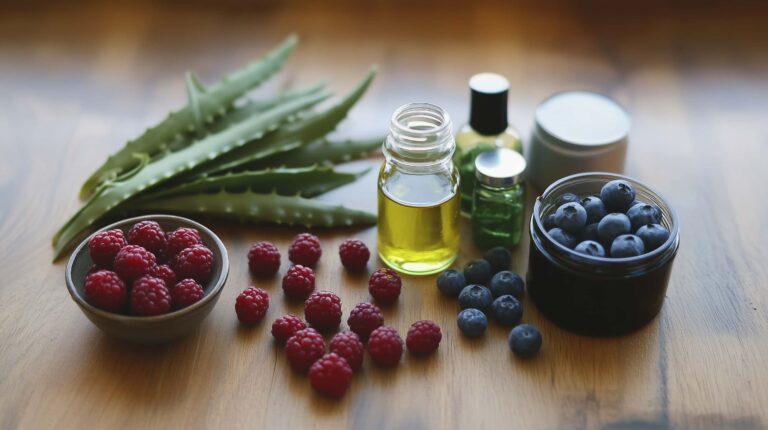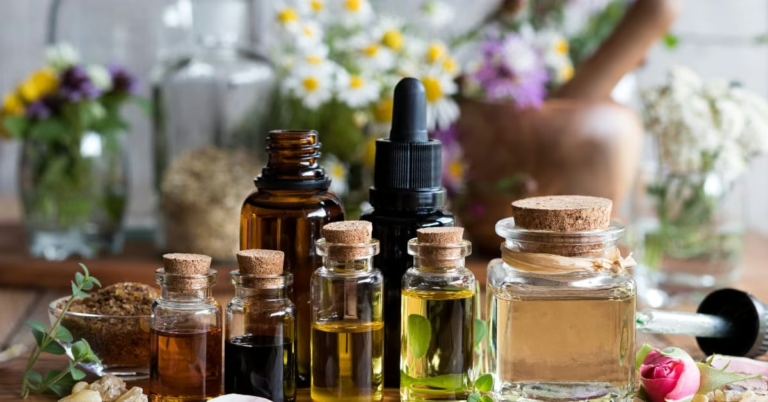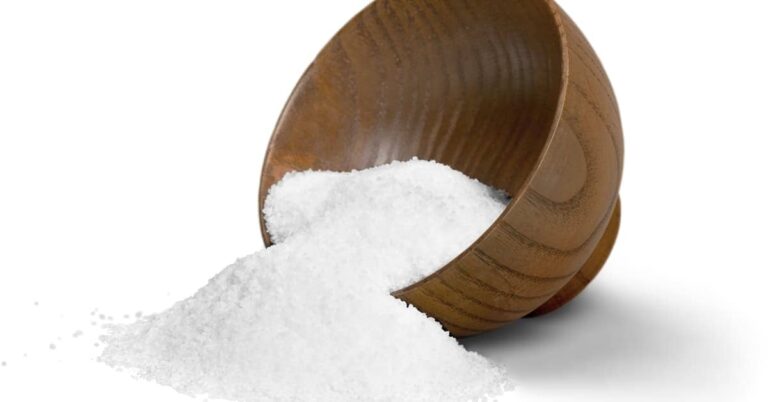7 Surprising Myths About Alcohol in Skincare (And What You Need to Know!)
You might have heard that alcohol in skincare is the ultimate villain, drying out your skin and accelerating signs of aging. It’s a scary thought, right? With so much conflicting information swirling around, it’s no wonder people feel confused about what to believe.
The truth is, not all alcohols are created equal, and many of the myths about alcohol in skincare are misleading—or downright false. By the time you finish reading this, you’ll feel empowered to make informed choices for your skin. Let’s debunk these myths together and uncover what you really need to know.
Myth 1: Alcohol in Skincare Always Dries Your Skin
If the word “alcohol” instantly makes you picture dry, flaky skin, you’re not alone. This misconception stems from the association of alcohol with harsh products, but here’s the reality: not all alcohols are the same.
Think of it this way: just as not all fats are unhealthy for your diet, not all alcohols are harmful to your skin. There are two main categories to consider:
- “Bad” Alcohols: Denatured alcohol (often listed as alcohol denat) and isopropyl alcohol are drying. These are typically found in astringent toners and can strip natural oils from the skin.
- “Good” Alcohols: Fatty alcohols, like cetyl, stearyl, and cetearyl alcohol, are skin-friendly. They act as emollients, helping to soften and moisturize your skin.
For example, fatty alcohols are commonly found in creamy moisturizers and lotions because they enhance the texture and provide hydration. So, no—alcohol in skincare doesn’t always dry out your skin. It depends entirely on the type and formulation.
Myth 2: All Alcohol is the Same
When you hear “alcohol,” you might lump it all into one category. But in skincare, alcohol serves various roles, and understanding these differences is key.
- Solvent Alcohols: These dissolve ingredients to ensure even distribution in the formula.
- Preservative Alcohols: They help extend the shelf life of products by preventing bacteria growth.
- Texture Enhancers: Fatty alcohols make products feel smooth and creamy.
Take, for example, benzyl alcohol—it’s often used as a preservative in natural formulations, while ethanol is a common solvent. Knowing what each type of alcohol does can make you more confident when scanning an ingredients list.
Myth 3: Products with Alcohol Are Not for Sensitive Skin
Sensitive skin? You’ve probably been told to avoid alcohol altogether. But this one-size-fits-all advice misses the mark.
While some alcohols, like denatured alcohol, can irritate sensitive skin, others, such as fatty alcohols, are soothing and hydrating. For instance, cetearyl alcohol is often included in products designed specifically for sensitive skin.
A great example is the CeraVe Moisturizing Cream, which contains fatty alcohols to lock in moisture and support the skin barrier. The key is choosing products with the right type of alcohol and avoiding those known to cause irritation.
Myth 4: Alcohol Causes Premature Aging
The idea that alcohol in skincare speeds up aging is enough to make anyone worry. But is it true? Not exactly.
Some alcohols, like denatured alcohol, may temporarily weaken the skin barrier if used excessively. However, occasional use in well-formulated products is unlikely to cause significant damage.
Keep in mind that external factors, like unprotected sun exposure, are much bigger contributors to premature aging. The takeaway? Prioritize sunscreen and hydration over obsessing about alcohol in your products.
Myth 5: Alcohol Is Only Used as a Preservative
While alcohol often acts as a preservative, its uses in skincare extend far beyond that.
For example, alcohol can:
- Help active ingredients penetrate deeper into the skin.
- Create lightweight, fast-absorbing textures in serums and toners.
- Stabilize formulations to ensure consistency.
Take your favorite quick-drying toner—it’s likely alcohol is part of the reason it feels so light and refreshing. Modern skincare formulations rely on alcohol for more than just preservation.
Myth 6: Natural Skincare Brands Never Use Alcohol
Think alcohol is only for synthetic brands? Think again. Many natural skincare brands use alcohol in their formulations for safety and efficacy.
For example, Weleda and Dr. Hauschka, both renowned for their natural credentials, include alcohol as a solvent and preservative. The key is in how it’s sourced and used. Ethanol, for instance, is often derived from plants in these formulations, ensuring it aligns with natural skincare principles.
Myth 7: Alcohol-Free Products Are Always Better
Seeing “alcohol-free” on a label can be reassuring, but it doesn’t always mean the product is better for your skin.
For one, alcohol-free products might lack the lightweight, quick-drying feel that alcohol-based ones provide. Additionally, “alcohol-free” formulations may rely on alternative ingredients that might not suit everyone. It’s all about finding the right match for your skin type.
How to Identify the Right Skincare with Alcohol
Not sure where to start? Follow these steps to navigate alcohol in skincare like a pro:
- Read the Label: Look for the type of alcohol listed (e.g., “cetearyl alcohol” vs. “denatured alcohol”).
- Know Your Skin Type: Sensitive skin? Opt for fatty alcohols. Oily skin? Products with denatured alcohol might help control excess sebum.
- Check the Product Purpose: A quick-drying toner might use alcohol for a specific function—don’t dismiss it without context.
- Test First: Always patch test new products to gauge your skin’s reaction.
Dos and Don’ts When Using Alcohol-Based Skincare
Here are some quick tips to make alcohol in skincare work for you:
Do:
- Pair alcohol-based products with hydrating ones.
- Use alcohol-containing toners to remove excess oil if your skin tolerates it.
Don’t:
- Overuse harsh alcohol-based astringents.
- Assume all alcohols are harmful—do your research first!
Wrapping Up: Busting Myths, Boosting Confidence
By now, you’ve peeled back the layers of misinformation about alcohol in skincare. You’ve learned that alcohol isn’t inherently a foe—it’s a tool. Like any tool, it depends on how it’s used.
Remember: skincare is not one-size-fits-all. The “bad” alcohols might not work for you, but the “good” ones could be your skin’s new best friend. With the right knowledge, you can approach your routine with confidence and clarity.
Ready to take the next step? Start by reviewing the ingredient lists of your favorite products. Or better yet, explore our curated skincare recommendations that balance science and skin compatibility. Empower yourself, and let your skincare journey shine brighter than ever!







